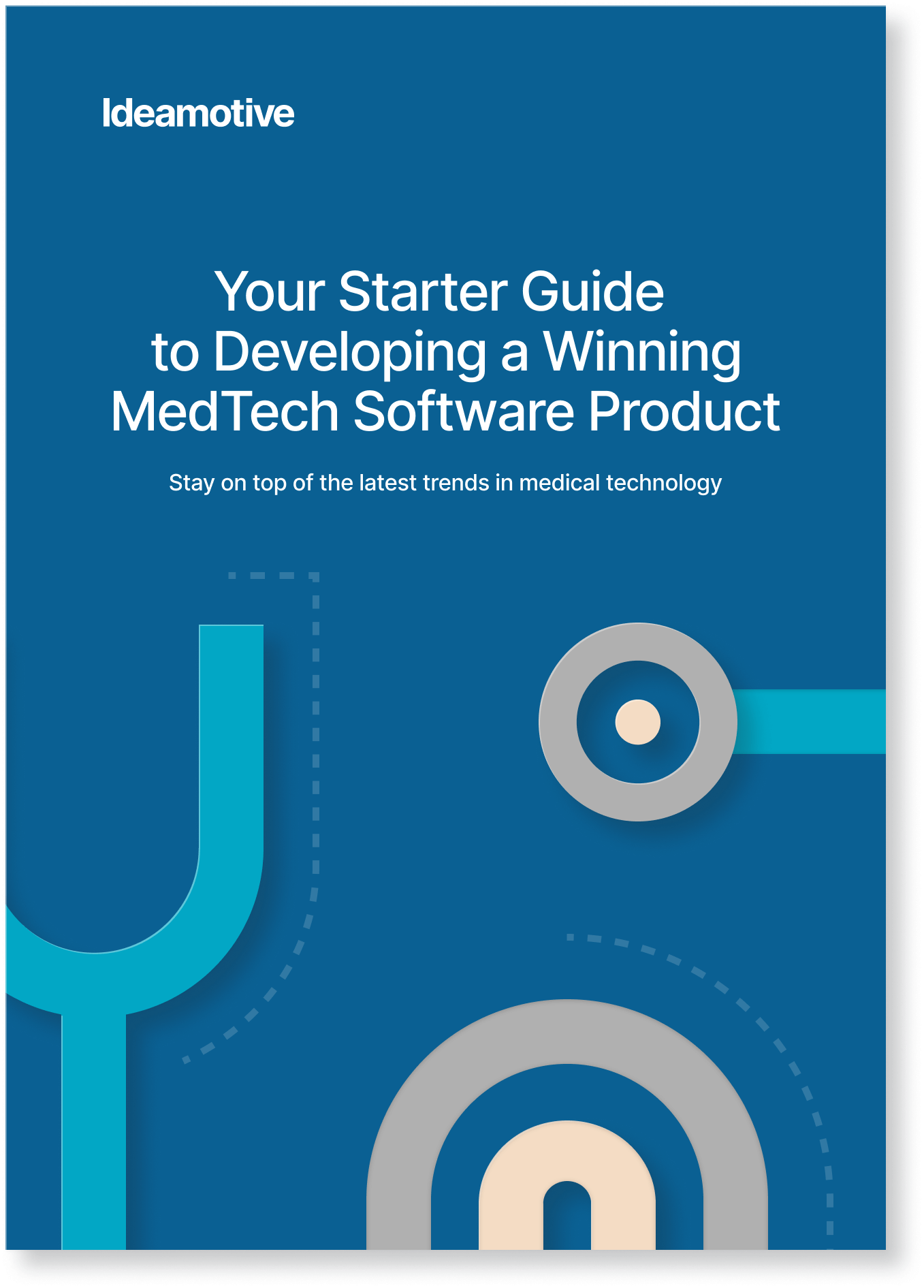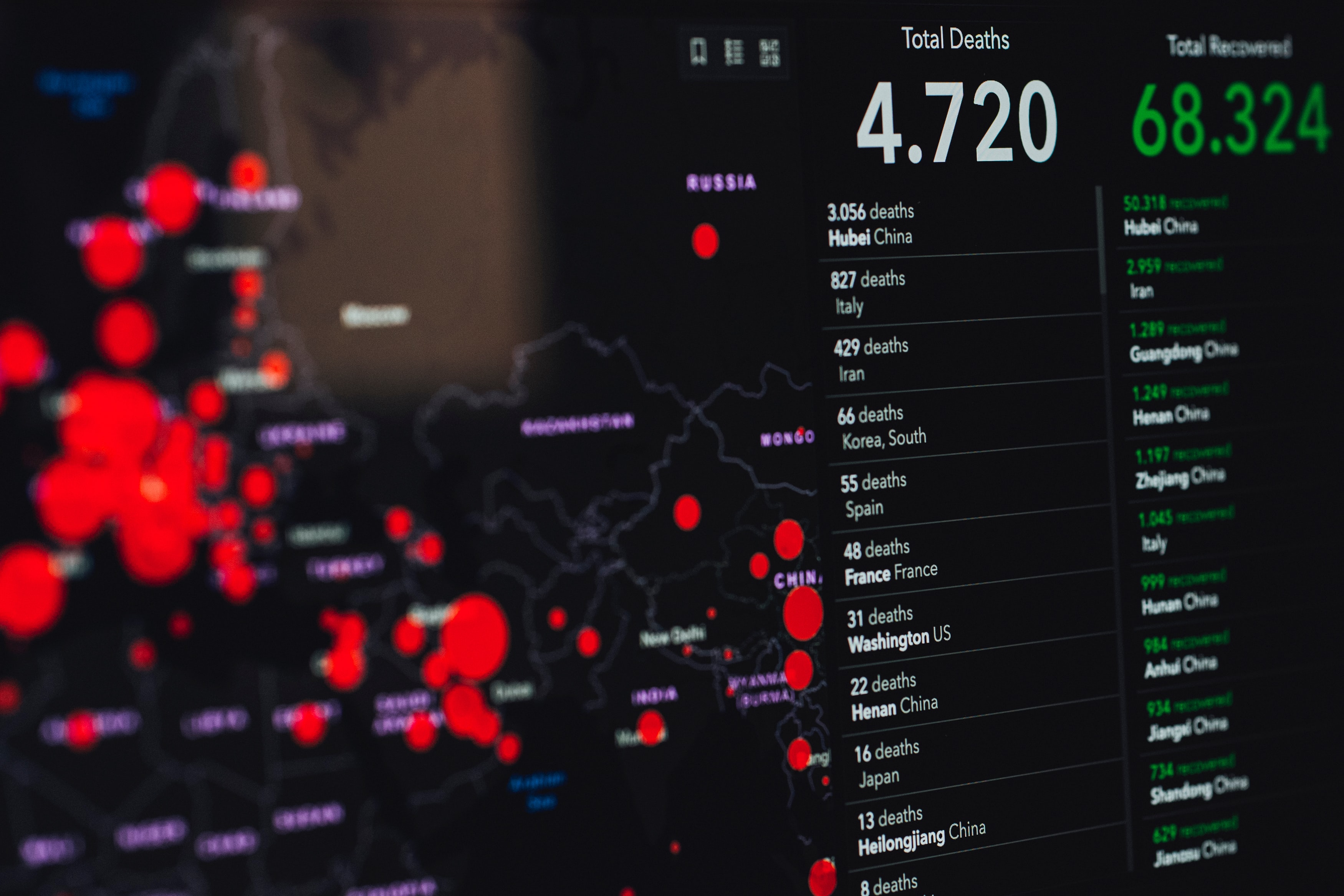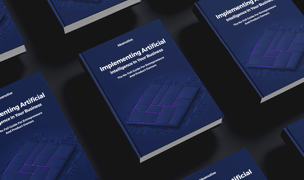The healthcare industry embraces technology nowadays as well. Maybe it happens not as fast as in other industries but we are surely getting there. In 2019 already, the digital health market reached $175 billion and the pandemic only accelerated digitalization.
Technology in healthcare has a lot of use cases: it monitors heart signals, creates breakthrough drugs, sees into the DNA, helps to treat patients remotely, finds more accurate diagnoses faster, and organizes the workflows of the hospitals nicely.
Basically, companies use machine learning, AI, web development, and other technologies to enhance any part of the healthcare industry with a little bit of tech.
If you thought that healthcare technology will simply be healthtech, you need to second-guess. Since different technologies are applied to different parts of the healthcare system - organization, treatment, pharmacy, for example - the industry created various types of tech. In this article, we are going to explore MedTech vs BioTech, BioTech VS HealthTect, and MedTech vs HeathTech. We will discuss the differences between these technologies and take a look at remarkable examples.
What is HealthTech?
Healthtech (oftentimes referred to as digital health) is a technology for better delivery, payment, and/or consumption of care. It is mostly about personal health, meaning patients engage with their personal health, and everything that happens outside of the hospital, like telehealth and remote monitoring. Healthtech is about prevention and monitoring rather than treatment.
Healthtech operates with databases, applications, mobile devices, and wearables. For example, wearables can track patients’ steps, blood sugar, heart rate and automatically send information to the health app on their phone. The app then analyzes the healthy habits of the user and gives recommendations accordingly.

However, healthtech has a category that exists within the hospital. It is about practice management software. It helps admins, doctors, and nurses to keep everything organized: schedule staff, schedule appointments, billing management, database with patient information, etc.
At Ideamotive, we have helped companies to create healthtech solutions ourselves. You can read more about Entia, Luma, Allmedica, Bonacea, WNL, and other products on the case studies page.
HealthTech revenue is anticipated to reach $504.4 billion by 2025 and you can find more statistics down below:
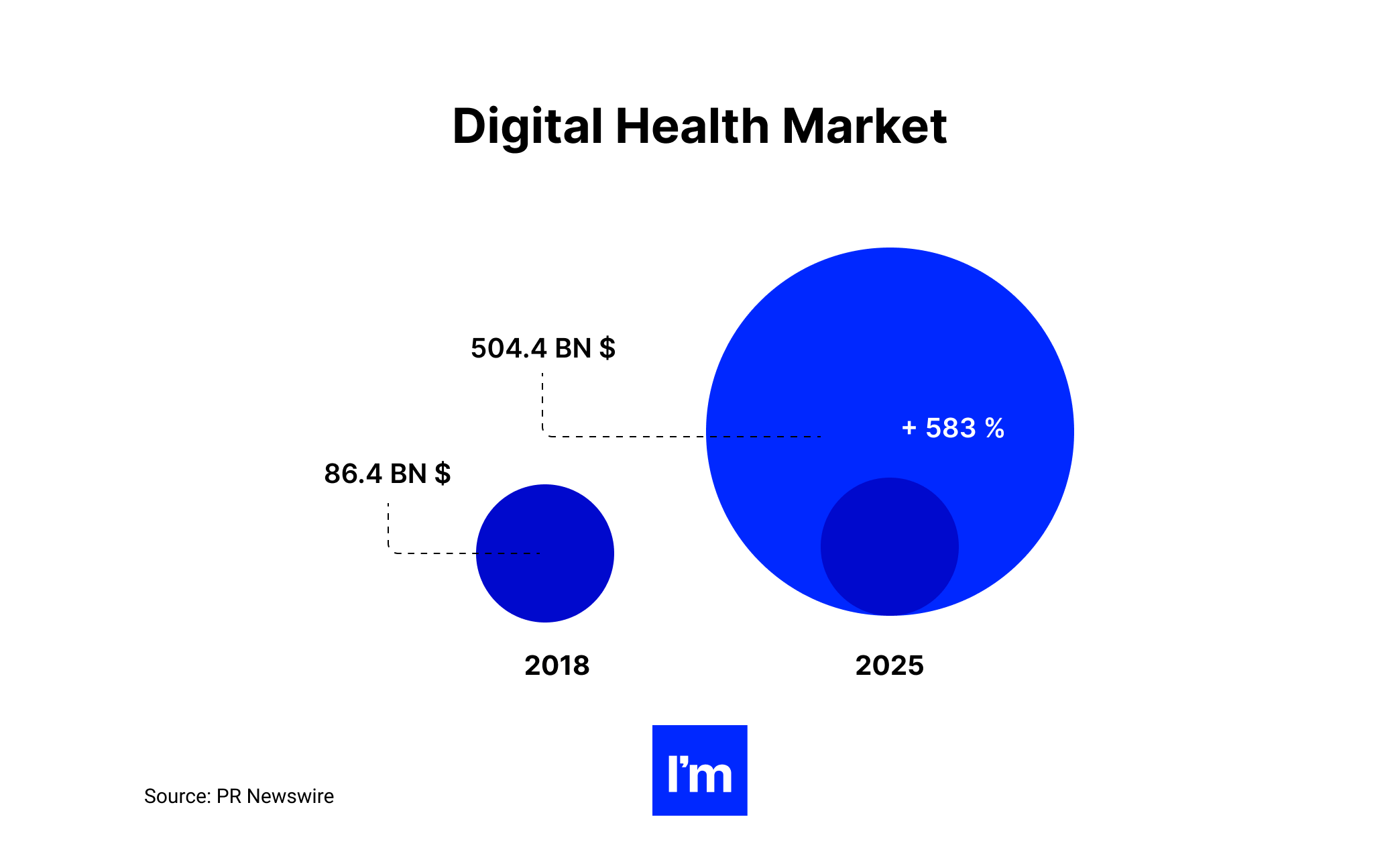
Taken from: https://www.prnewswire.com
The main reasons of the rapid market growth include:
- Patients need it: they are used to high digitalization in other industries and expect the same from healthcare
- The awareness about mental and physical wellbeing rises so patients try to take care of their own health and need resources to do so
- The world is aging and there is more pressure and work for medical staff. They need automation and organization to make everything work
What is MedTech?
Medtech technology is commonly used for diagnosis, patient care, treatment, and improvement of a person’s health. It is mostly used inside the hospital and is oriented toward diagnosing and treatment rather than prevention.
Medtech includes equipment, devices, machines, software, and tools. They have a regulated path to market since they may have a severe effect on people’s health.
This type was designed to create better treatment: faster and more accurate diagnosis, safer surgeries, less invasive checks, etc. Medtech includes all kinds of well-known tools: thermometers, laser surgery, prosthesis, inhalers, stethoscopes, surgery gloves, MRIs, etc.
In 2024, MedTech is expected to hit almost $600 billion, with 2-8% of growth per year.
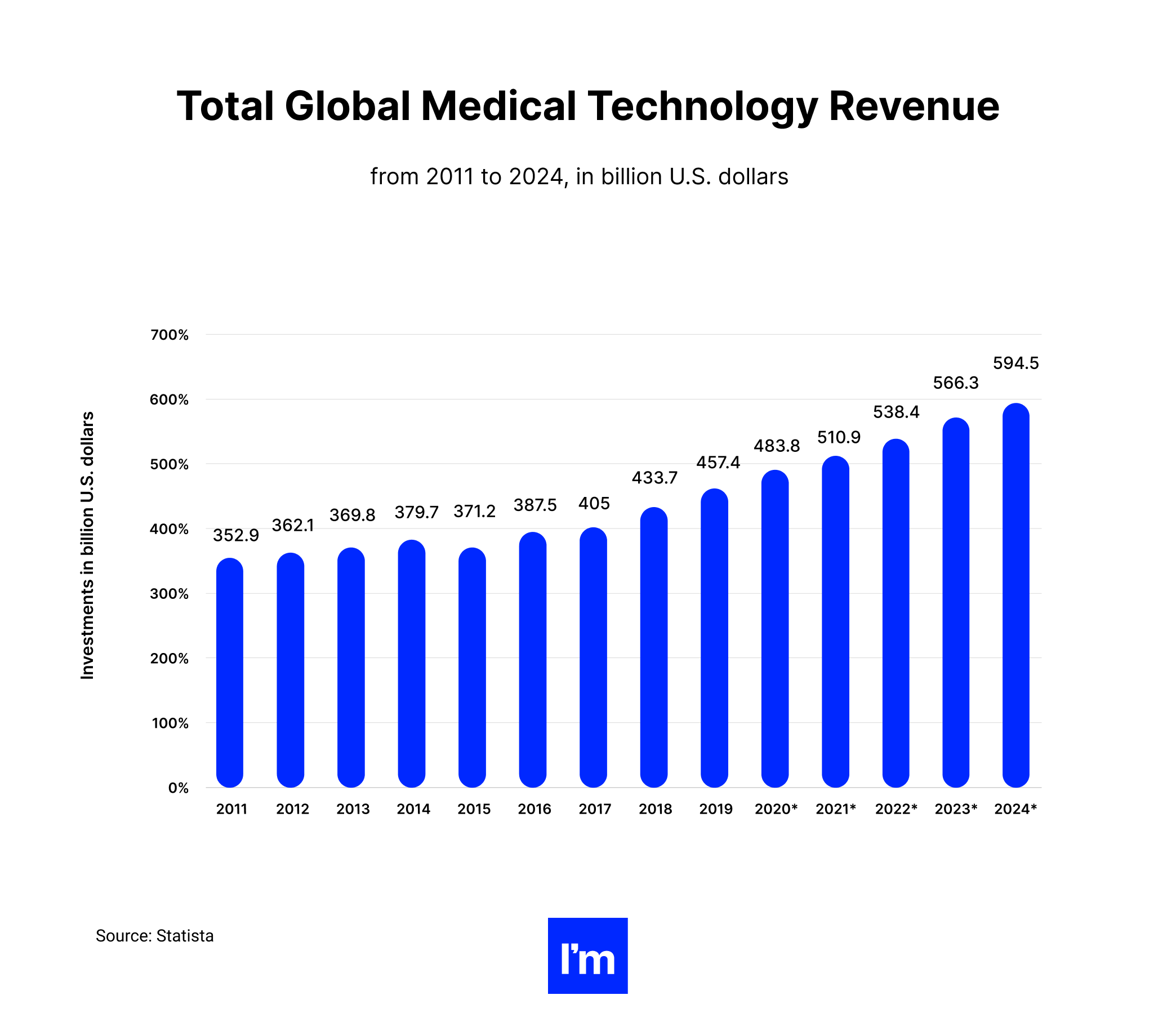
Taken from: https://www.statista.com
What is BioTech?
Biotech is a technology based on biology, meaning that living organisms and biological shd processes are used in the production of biotech.
Biotech actually has a lot of use cases: it can be used in agriculture for creating sun-resistant species of vegetables, for example, or in the environmental industry where you can use natural processes for degradation or filtration.
When it comes to healthcare, it is mostly created to make new drugs, predict how they will affect people, based on their cell information, genetic testing, and artificial tissue growth. For example, vaccines are also being produced with the help of biotech. Big biotech companies were the ones who developed vaccines from COVID-19.
Biotech is heavily regulated and must undergo numerous clinical trials before they reach the market. It is partly because biotech drugs may have an unexpected long-term effect and mostly because their side effects are deathly.
The global biotech market was estimated at $752.88 billion in 2020, with a health application segment of 48,64%. The CAGR of biotech is expected to be 15,83% in 2021-2028. Down below you can see what technologies the biotech sector consists of.
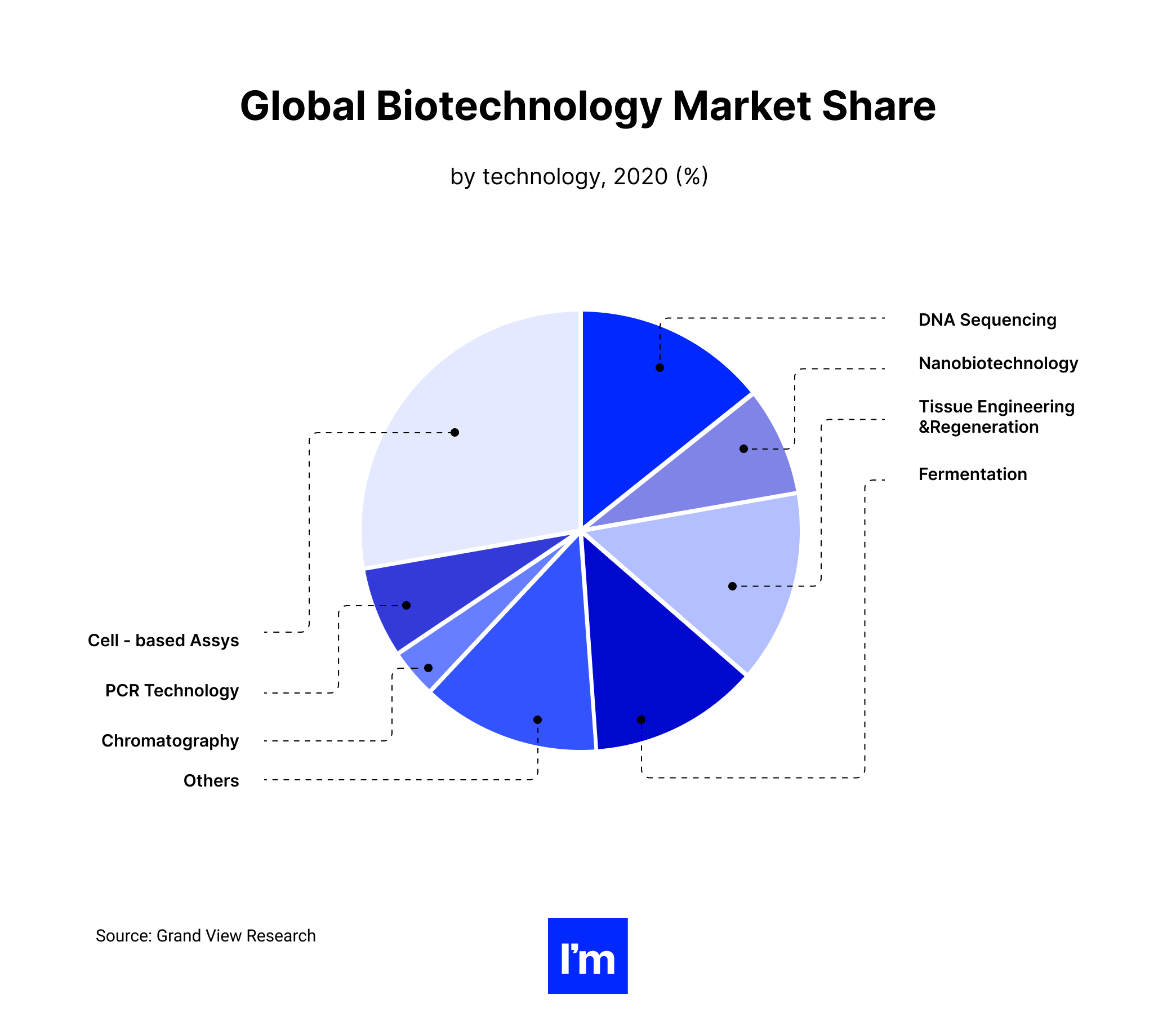
Taken from: https://www.grandviewresearch.com
However, biotech experiences barriers in its development due to ethical and psychological issues. Genetic screening has privacy concerns. Some of the biotech drugs use embryos for researching stem cells which hinders the embryo’s development. Biotech can develop viruses with unpredicted consequences. Gene surgery sparks ethical discussions about people’s individuality and how far one should go in changing the person.
Differences and Similarities
Similarities in MedTech vs BioTech, BioTech VS HealthTect, and MedTech vs HeathTech
The only similarity between all three is that they are technologies related to healthcare (even though we can question that biotech is not related to healthcare exclusively).
However, there are many similarities between healthtech and medtech, they are often used interchangeably. The similarities arise with monitoring and diagnosing, to be precise.
Both doctors and patients have access to diagnostic software, they are more well-known as symptom checkers among patients. They are still different solutions with different purposes: you can’t use a symptom checker as a patient, self-diagnose and demand a prescription and medicine. The end goal is to understand whether you need to see a doctor as soon as possible and what specialist you need to go to. Diagnostic apps for doctors are used more as a knowledge base with a scientific approach: they use it as a reference and consider different choices while knowing your health background and lab results. The line here is quite thin and still not defined, whether diagnostic apps belong to medtech or healthtech.
The same thing goes for monitoring. If a pulse wearable is used at a patient’s home, it is a healthtech that turns into medtech if it is used and monitored inside the hospital.
Medtech vs biotech are both used to treat patients, rather than prevent like in the case of healthtech. They are also strongly regulated. However, that is the only similarity.

Differences Between MedTech vs HeathTech vs BioTech
- Healthtech is mostly for the use of patients outside the hospital, with practice management software being the exception. It mostly comes in the form of apps and wearables.
- Medtech is used by doctors for better treatment in the hospital and mostly comes in the form of devices and tools.
- Biotech is a broad scientific field that requires extensive work of researchers.
The work is mostly done in the labs, rather than in the field. The product of biotech is mostly drugs and modified organisms.
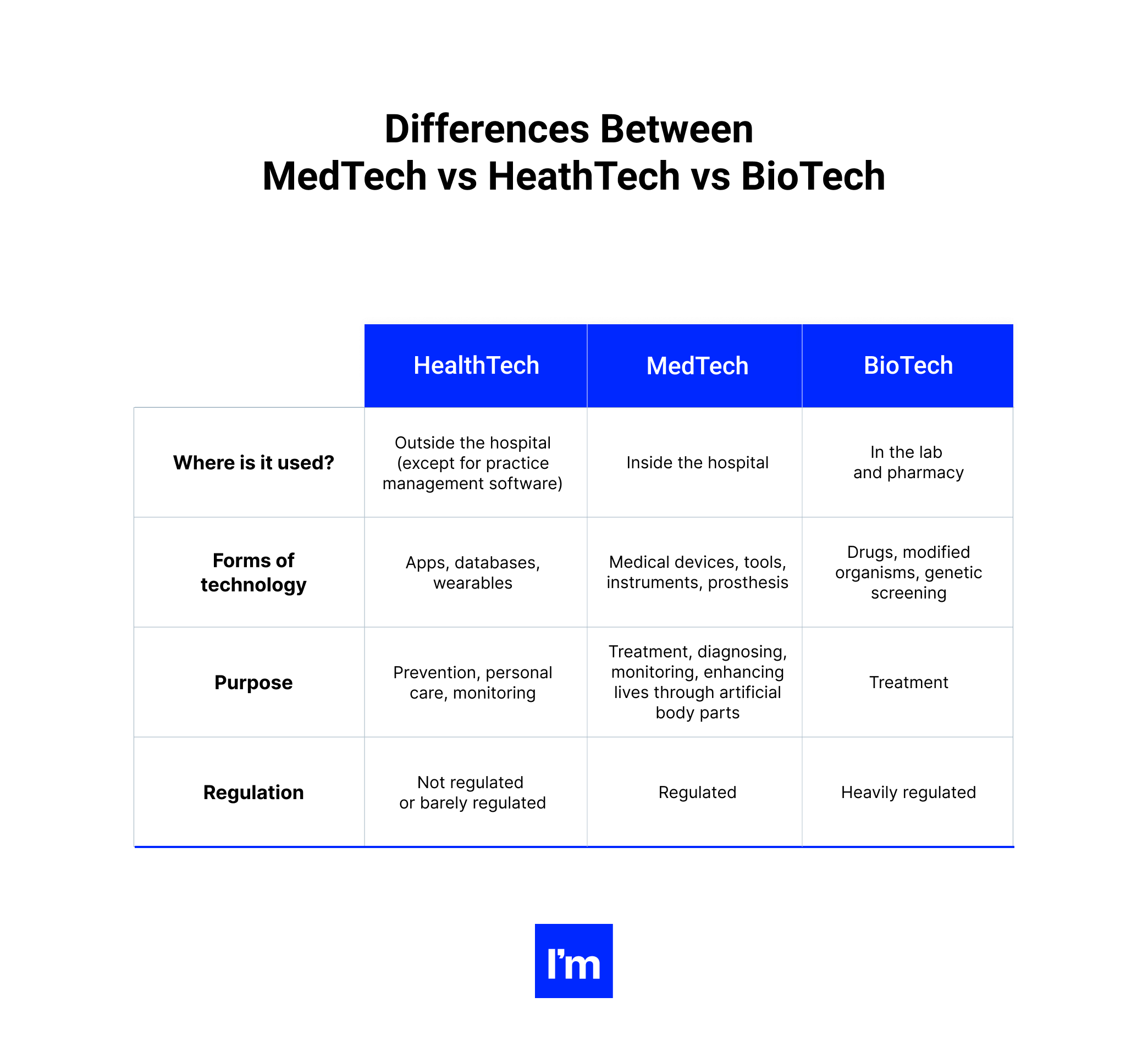
HealthTech, MedTech and BioTech Examples
HealthTech Examples
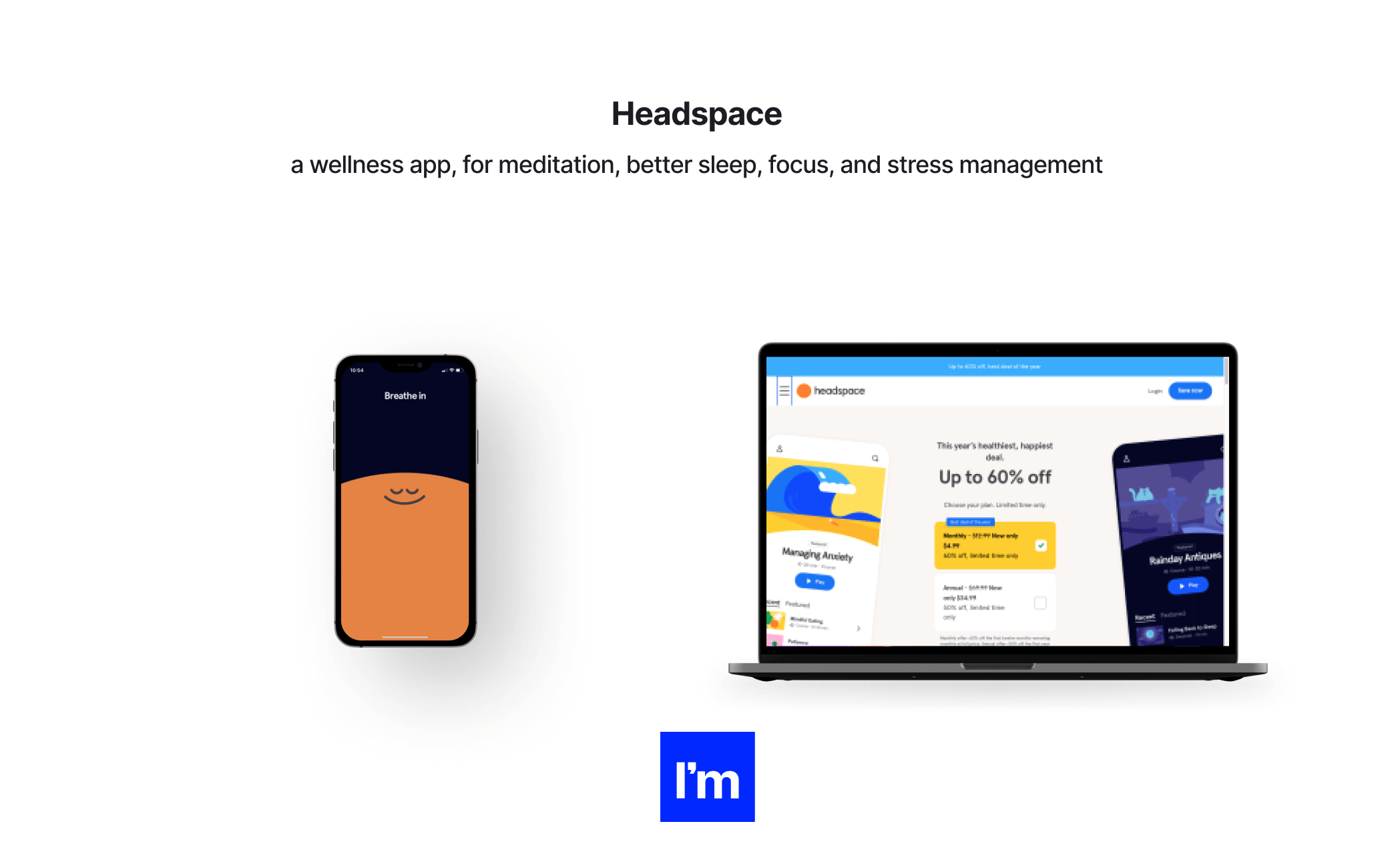
Headspace is a wellness app, created for meditation, better sleep and focus, and stress management. Headspace offers guided meditations for reduction of stress and anxiety, work and productivity, mindful eating, and learning. The focus section is filled with focus music. The sleeping section offers bedtime stories with calming sounds for going to sleep and inspiring stories, advice from experts, and funny videos for waking up. There are also fitness courses guided by Olympian trainers.
The app has a clear and calming design and all the features set to explore mindfulness within one app rather than using multiple platforms. Headspace offers help to numerous target audiences like students, teens, kids, ill and stressed, those who seek motivation or relaxation. Headspace uses AI and machine learning to offer real-time tips and guidance to the users.
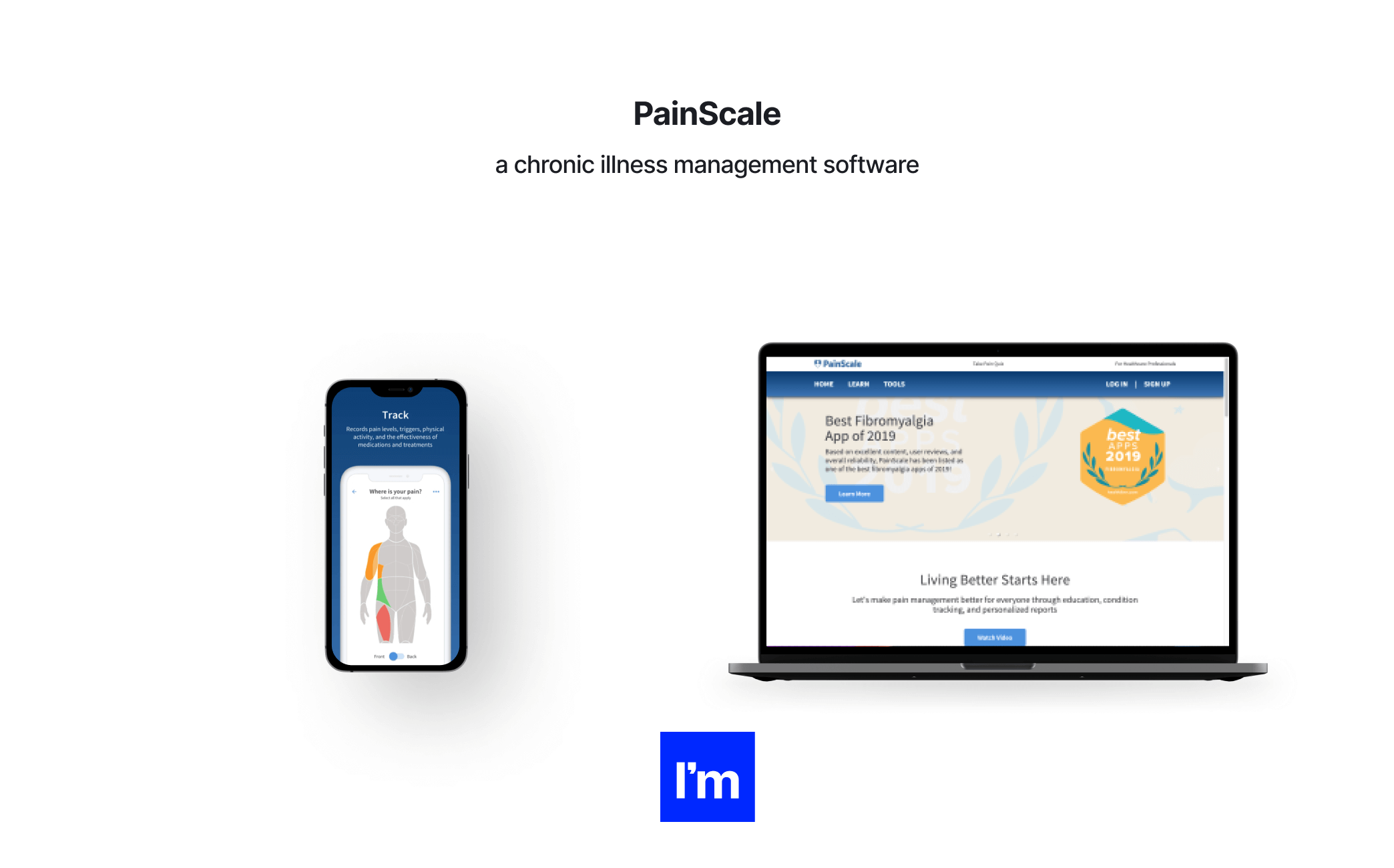
PainScale is a chronic illness management software. It allows users to track their pain: its location, frequency, intensity, etc. Patients can send their entries to the doctor. Based on the provided information, the app can also send personalized tips in fitness, mindfulness, and nutrition, and scientific but easy-to-digest articles for further research. It has become possible because of AI.
The app has a very intuitive interface so that patients of all ages can navigate the app. It also supports connectivity with Apple HealthKit and sends notifications to the users to remind them to use the app.
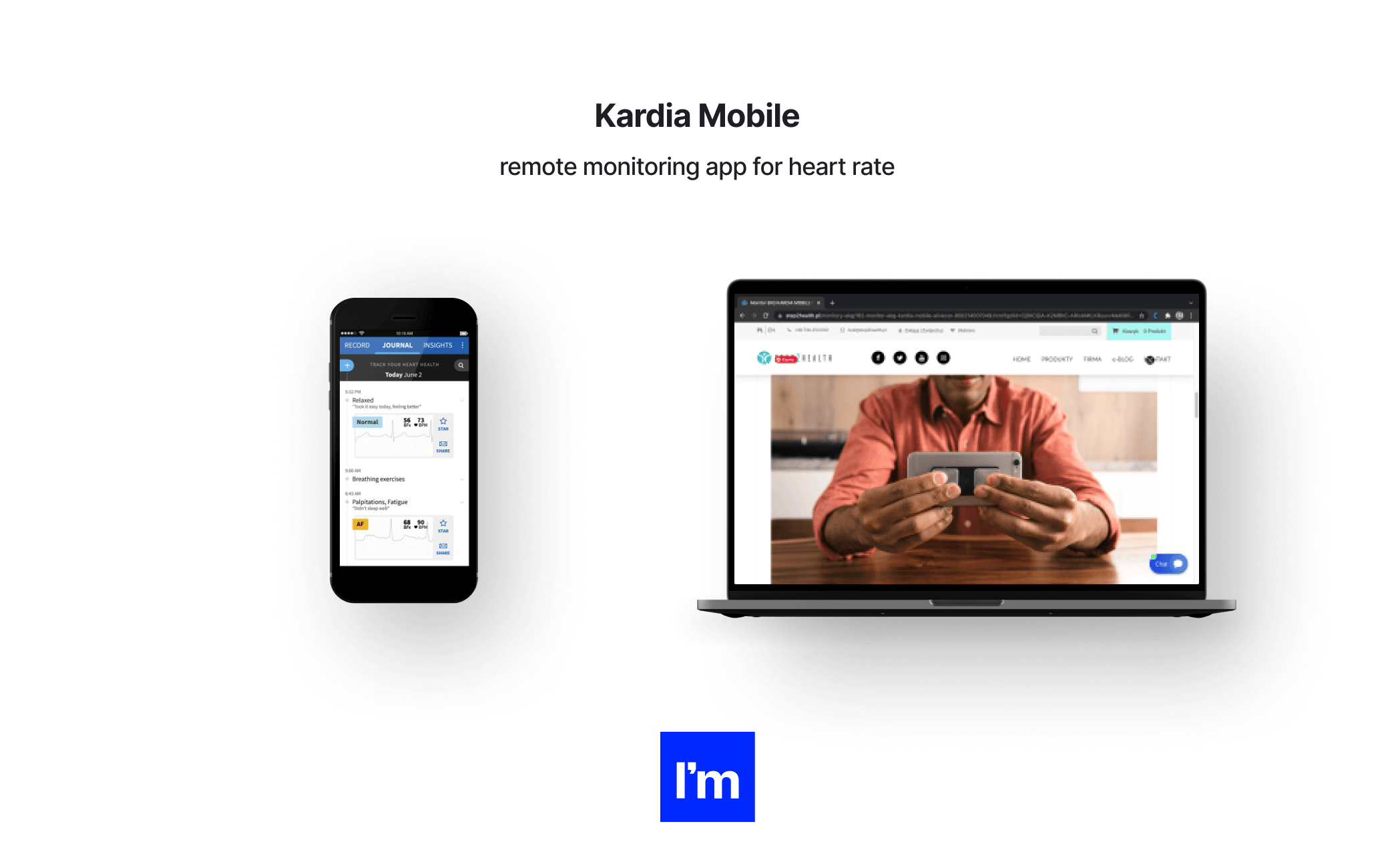
Kardia Mobile is a monitoring app for heart rate. It comes in the form of a small device with an app. Patients put two fingers on the device and the latter sends a traditional EKG to the app on their mobile phone. In case of bad results, you will receive an alert. The app allows you to send results to the doctor via email too.
The app comes with a minimalistic interface, easily accessible knowledge base, and analytics tool.
MedTech Examples
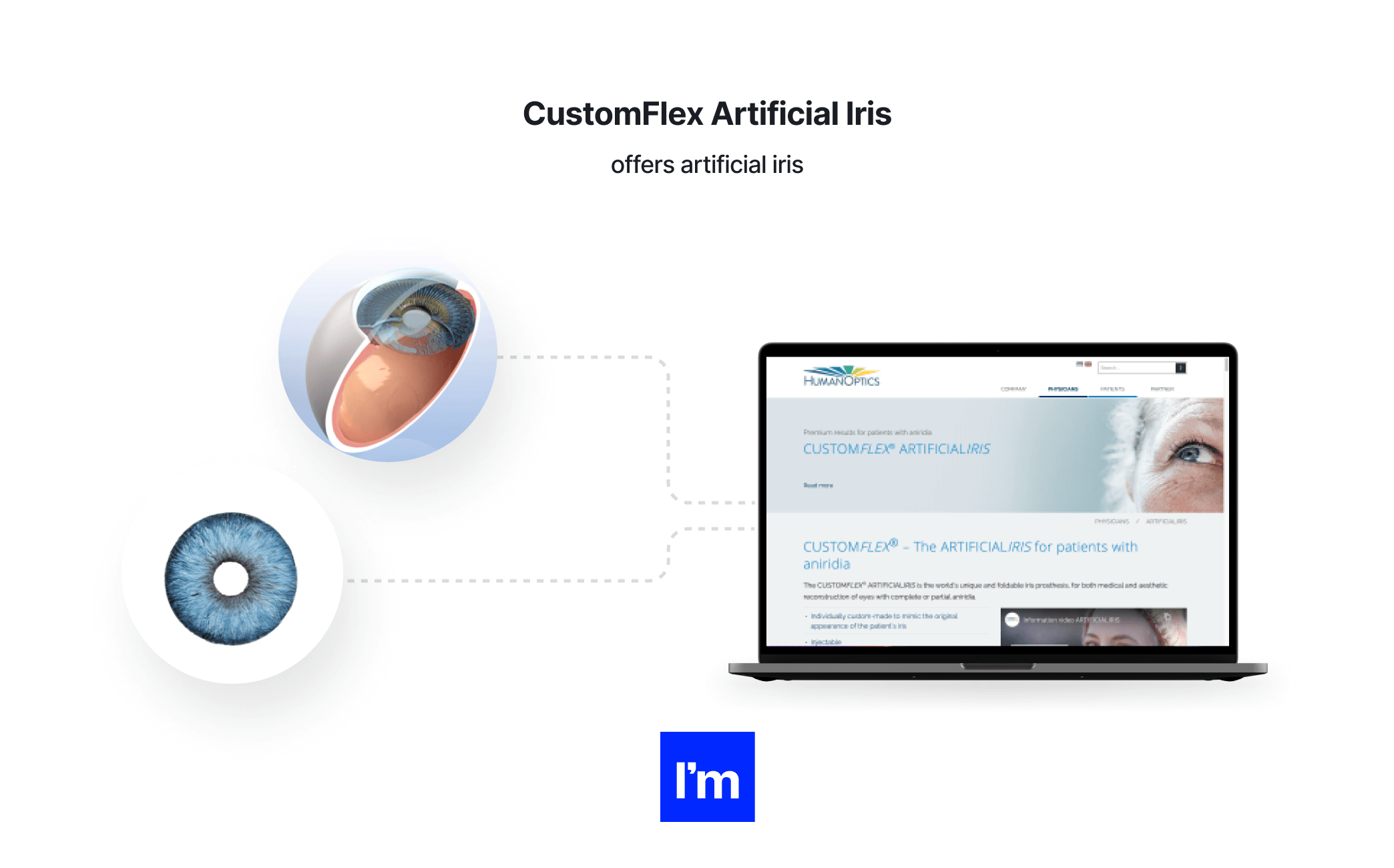
CustomFlex Artificial Iris offers artificial iris to those who have aniridia, a condition when a patient has the part of or no iris and, therefore, they have increased sensitivity to light or reduced sharpness of vision. The iris can be made to resemble the original appearance of the patient’s eye and help them to control how much light enters. The technology is versatile and biocompatible. Patients report vision recovery and great cosmetic outcomes.
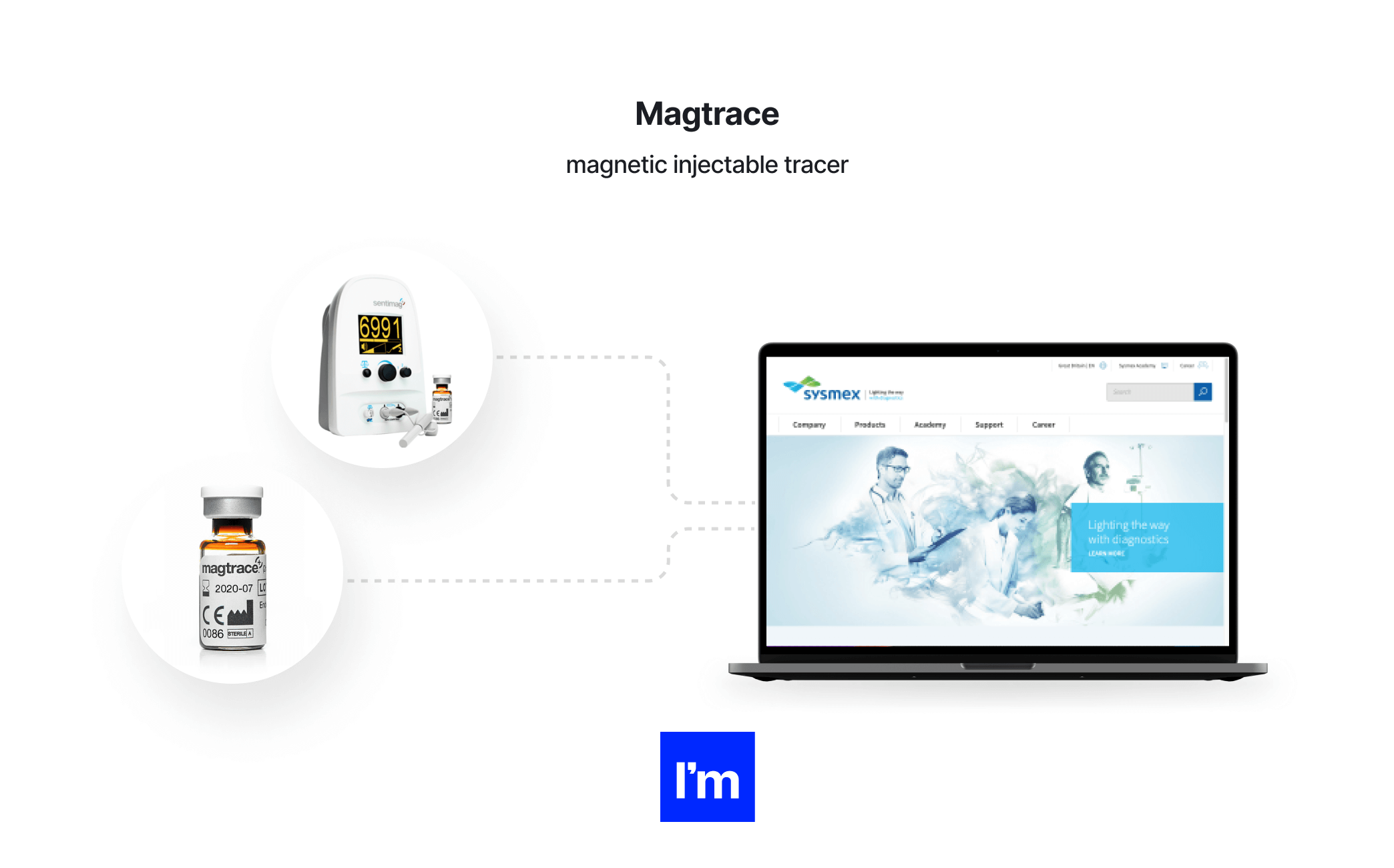
Magtrace is a magnetic injectable tracer that helps doctors to understand whether breast cancer spreads to the lymph nodes. It is a substitute for radioisotope and blue dye which are usually quite harmful to the patients: the latter can cause anaphylaxis and skin necrosis.
%20for%20Epilepsy.png?width=2088&name=MedTech%20-%20Deep%20Brain%20Stimulation%20(DBS)%20for%20Epilepsy.png)
Deep brain stimulation (DBS) for epilepsy helps patients with epilepsy that does not respond to medical treatment to reduce the frequency of seizures or prevent them. Adults undergo surgery where the device is placed in the brain and later programmed by professionals. The DBS device sends electric impulses to the areas responsible for seizures.
BioTech Examples
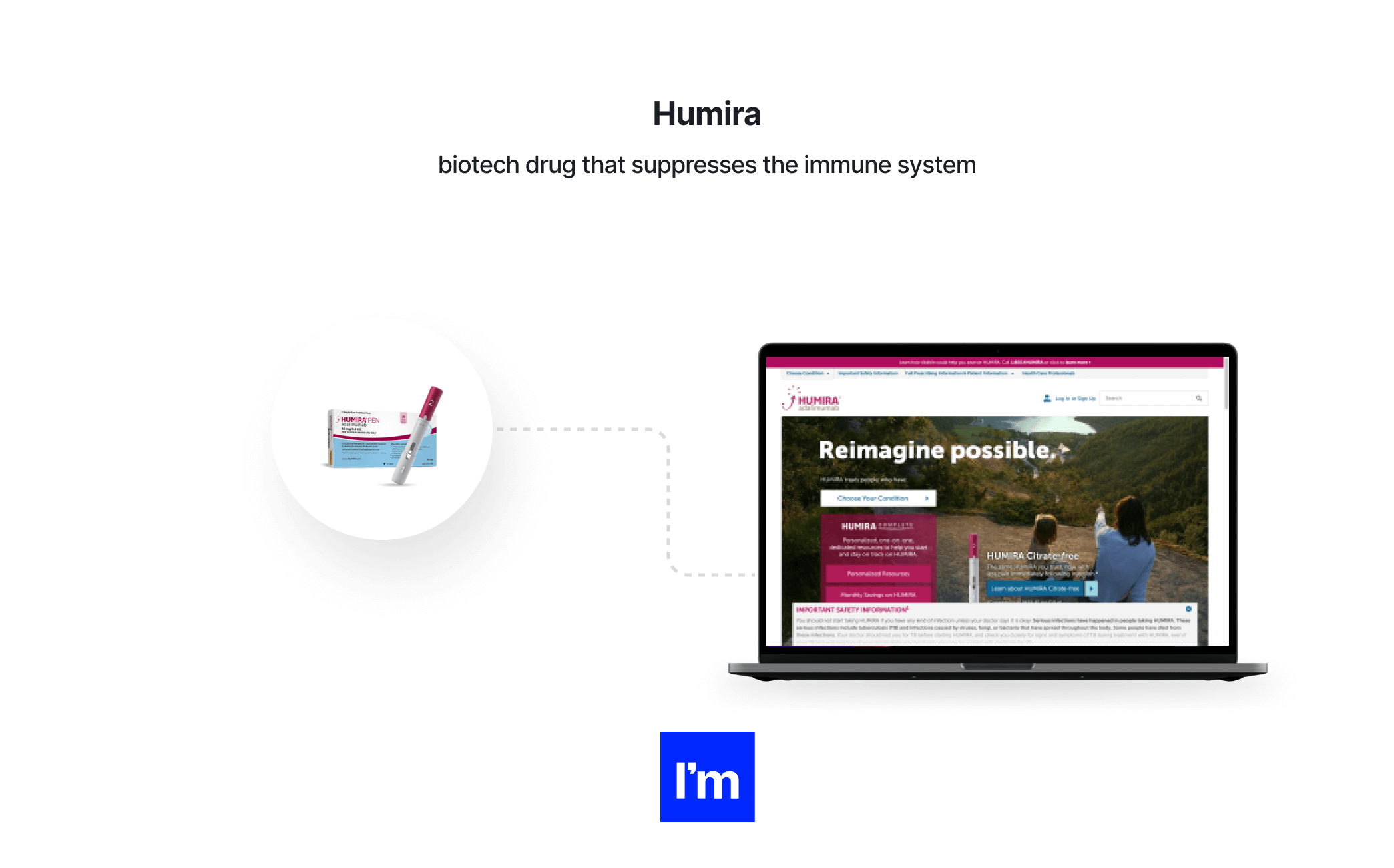
Humira is a biotech drug that suppresses the immune system. It was created out of human antibodies and it reduces tumor necrosis factor. The drug helps with different autoimmune diseases like different types of arthritis, Crone’s disease, etc. The drug is used only if the patient does not respond to other treatments since it has serious side effects like an increase in the risk of serious infections since the immune system is suppressed and can not protect you.
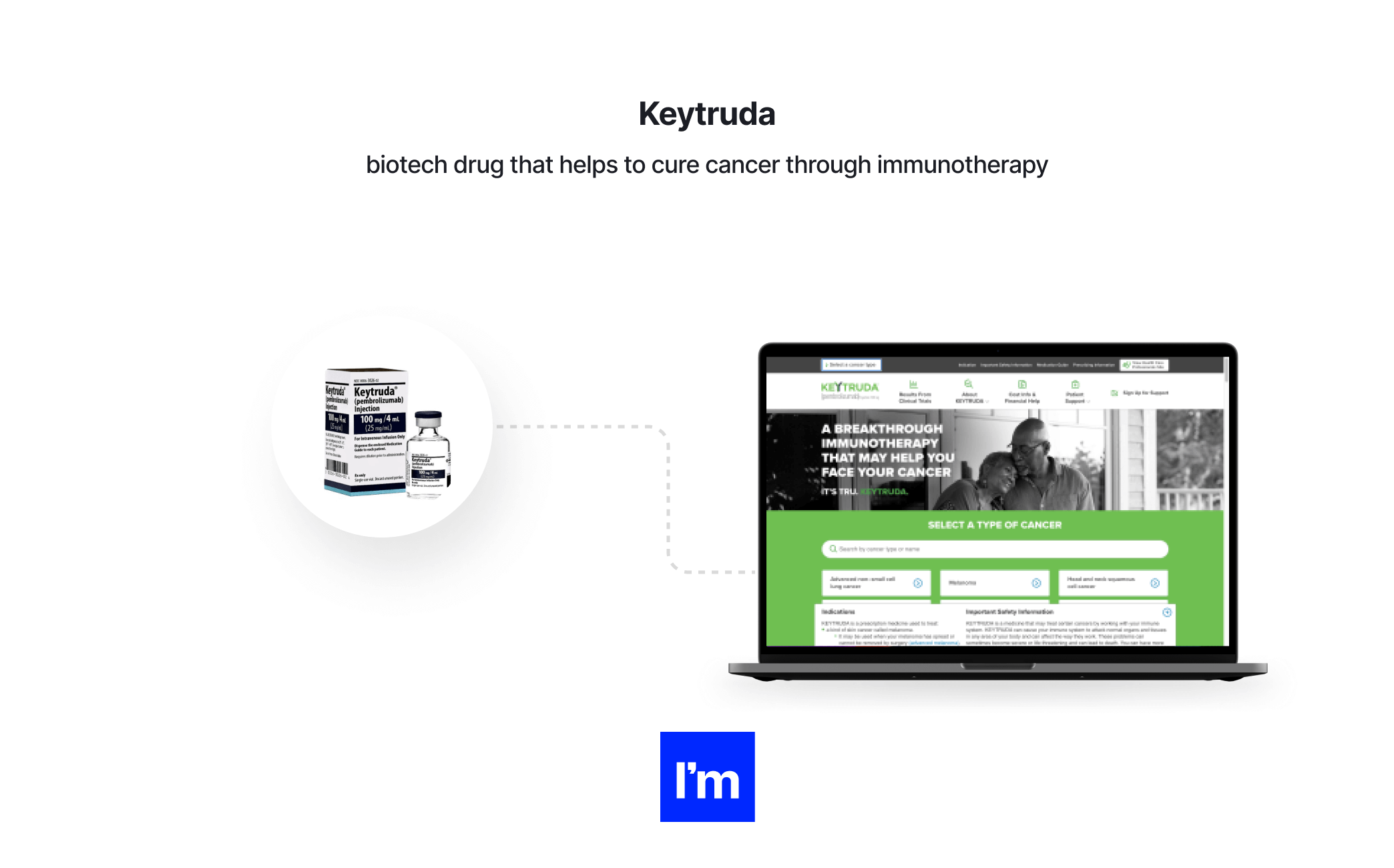
Keytruda is a biotech drug that helps to cure cancer through immunotherapy. Cancer cells are usually hiding behind PD-1 pathways. The pathway prevents the immune system to define cancer cells as diseases and, therefore, cure them. Keytruda blocks these pathways and the immune system starts to fight cancer on its own. The drug is used for some types of skin cancer, lung cancer, lymphoma cancer, etc. However, it can make your immune system attack healthy organs and cause death so the drug is used only in limited cases.
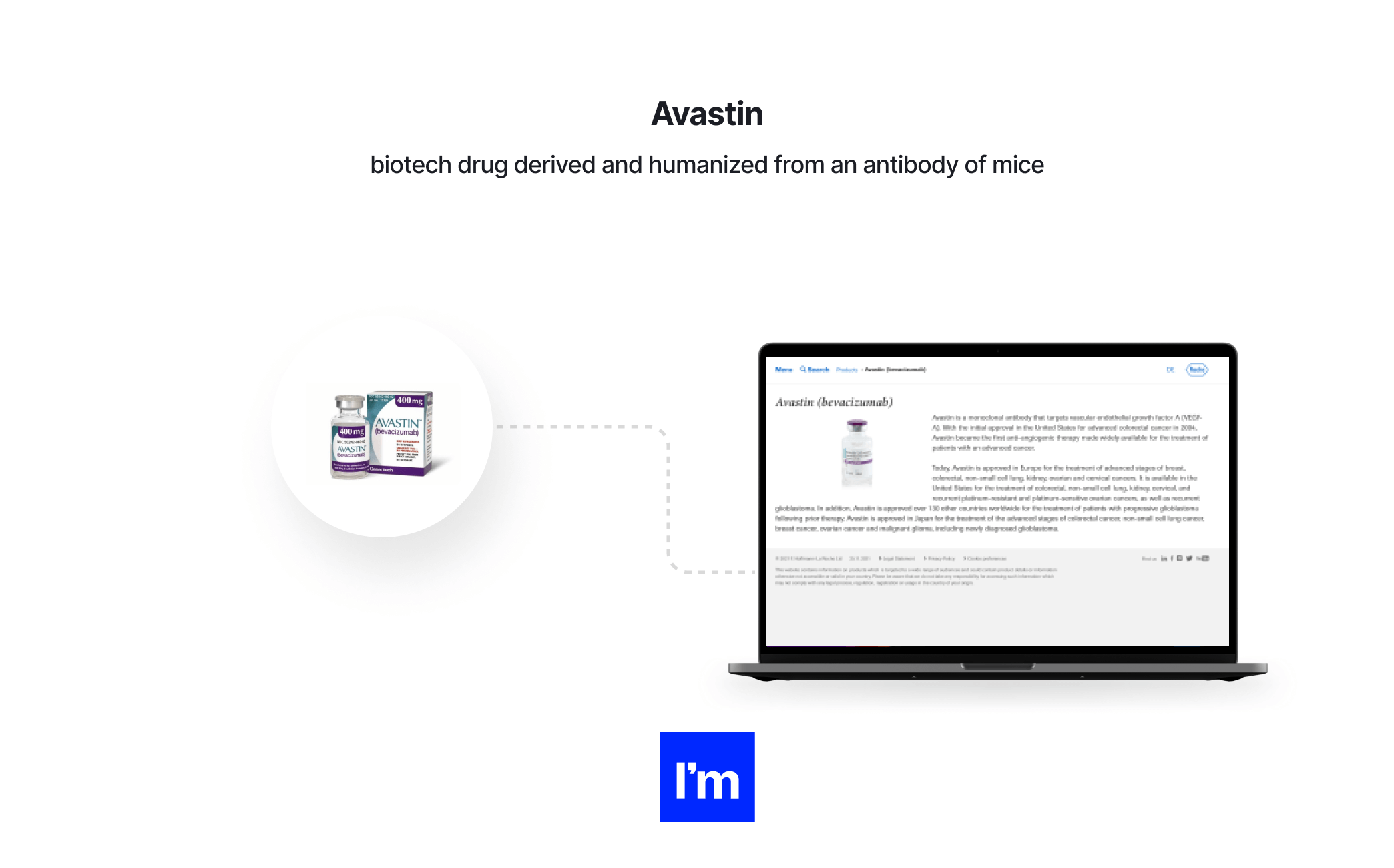
Avastin is a biotech drug that was derived and humanized from an antibody of mice. The antibody suppresses the growth of tissues. Such an effect is needed for suppressing the growth of cancer. Combined with other medications, it shows good results and lengthens the life of patients. It does not have severe side effects.

Conclusion
Now you know the differences between MedTech vs BioTech, BioTech vs HealthTect, and MedTech vs HeathTech. All these technologies revolutionize healthcare today and they do it from different perspectives. Healthtech promotes personal care, medtech offers devices and instruments for better and more accurate treatment and diagnosis, and biotech creates useful drugs for previously incurable diseases.
Are you looking for healthtech, medtech, and biotech developers or neutral network programming experts to become the next change-maker in the healthcare system? Do not hesitate to reach out to Ideamotive. We have a wide pool of talented professionals who would profoundly analyze your business needs and offer the best-fitting solution to meet your long-term goals.

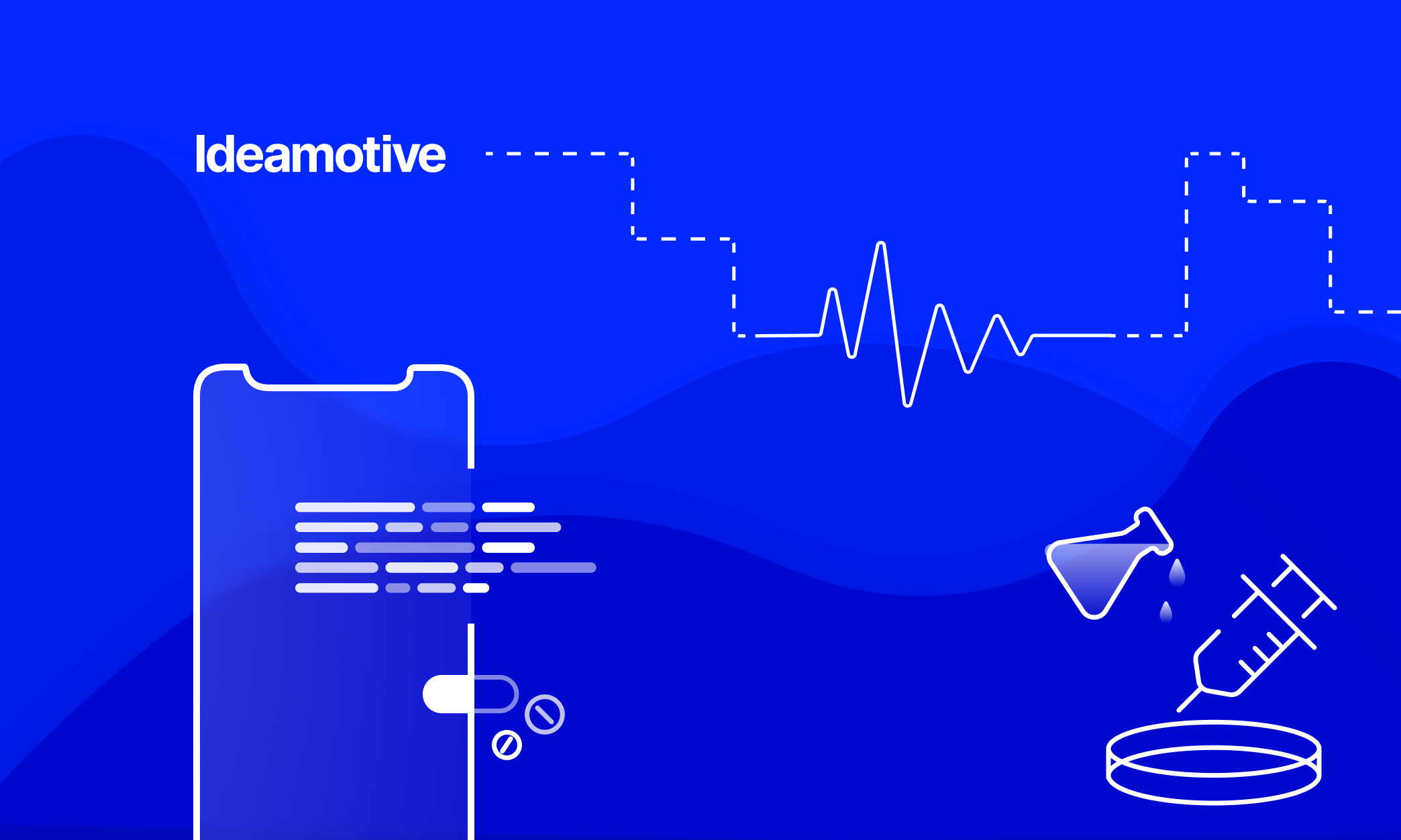












%20for%20Epilepsy.png?width=2088&name=MedTech%20-%20Deep%20Brain%20Stimulation%20(DBS)%20for%20Epilepsy.png)





